MCU Villain Redemption Arcs Ranked from Worst to Best
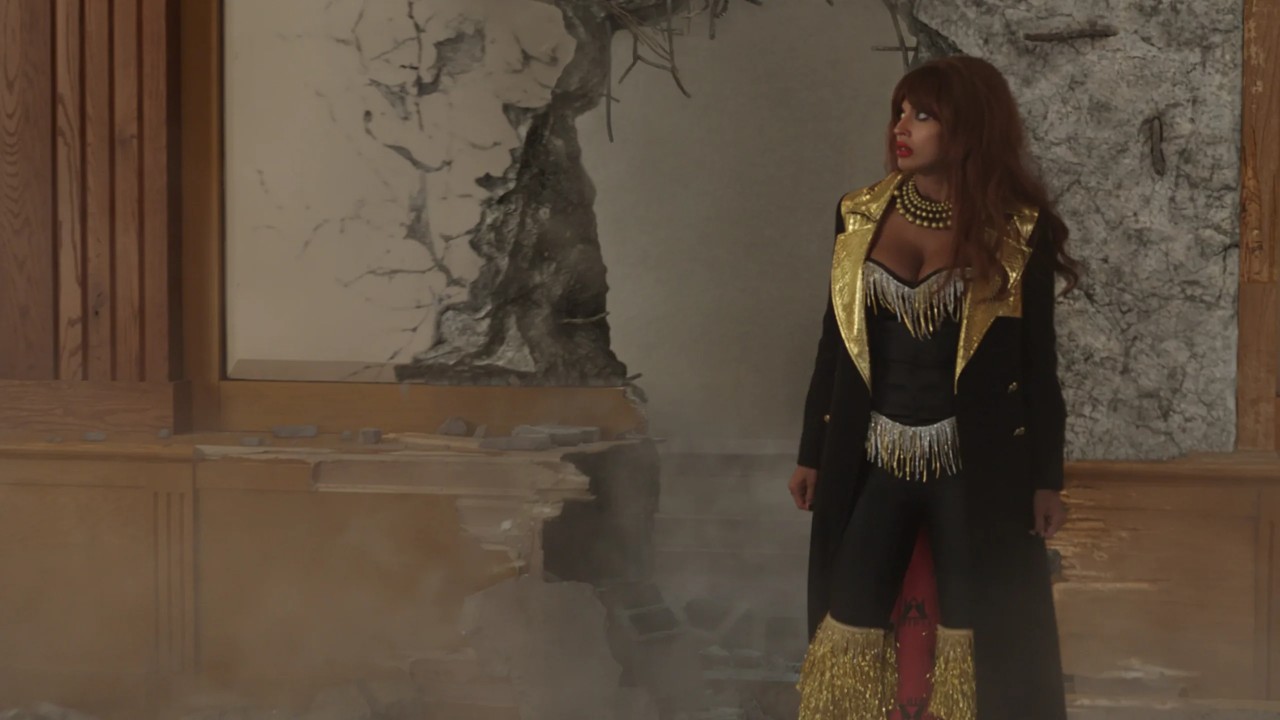
This vendible contains MCU spoilers
Some superhero stories truly glide on the idea of a hero’s redemption. In the Marvel Cinematic Universe, we have seen notation like Tony Stark, Stephen Strange, Natasha Romanoff, and Gamora make up for their past sins via heroism. A viewer’s love for a unconfined redemption story occasionally mixes itself with the concept of a villain so likable that you no longer want to root versus them.
There have been many villains in the MCU and a good permafrost of them have reverted their ways for the largest over time. A good face-turn could unchangingly get the thoroughbred pumping. We’ve decided to rank the weightier ones.
First some ground rules: this list is based on villains or at least antagonists. Yes, Tony Stark was a dick and was responsible for myriad deaths, but he has unchangingly been portrayed as the good guy. Similarly, these villains have to unquestionably do something good to show how they have moved forward. Taskmaster and Ghost are two bad guys who nippy out by the end of the movie, but do not do anything vastitude that.
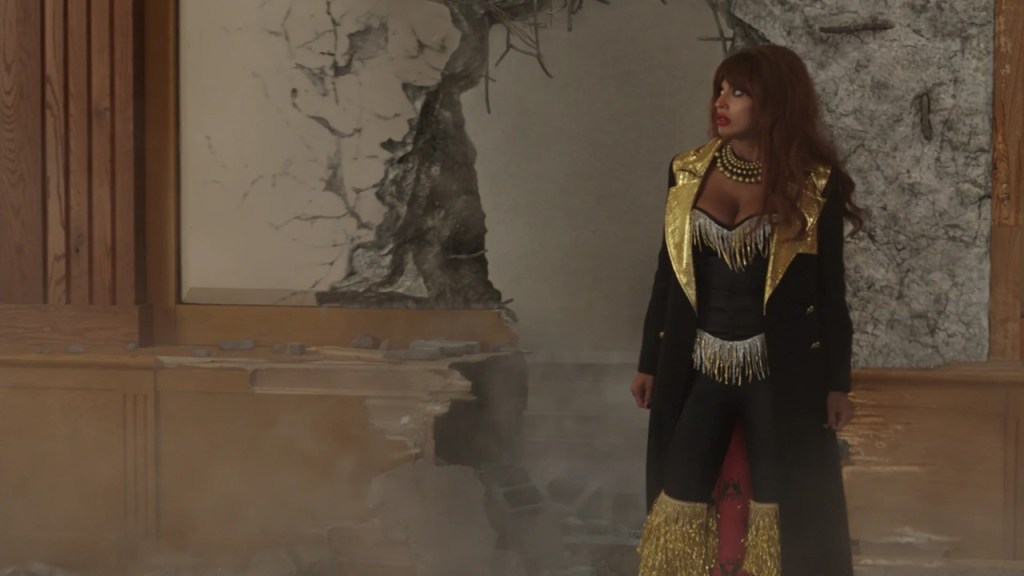
20. Titania
As enjoyable as Jameela Jamil’s portrayal of Titania is on She-Hulk: Attorney at Law, the finale’s otherwise fun rewrite gimmick completely forgets well-nigh her. Without all this time trying to mess with Jennifer Walters, Titania shows up at the Intelligencia meeting to seemingly aid her rival. Titania never explains herself, she is only portrayed as flinging incels to their doom, so it looks like the organization’s humiliating treatment to She-Hulk was over the line in her eyes.
Jen pointed out that this was a bit too crazy for the story, but when it came time to rewrite the climax, Jen made no mention of Titania whatsoever. Her presence remained and she was plane there to scuttlebutt on Todd Phelps’ arrest. It’s just that there was zero context as to what she was doing there in the first place.
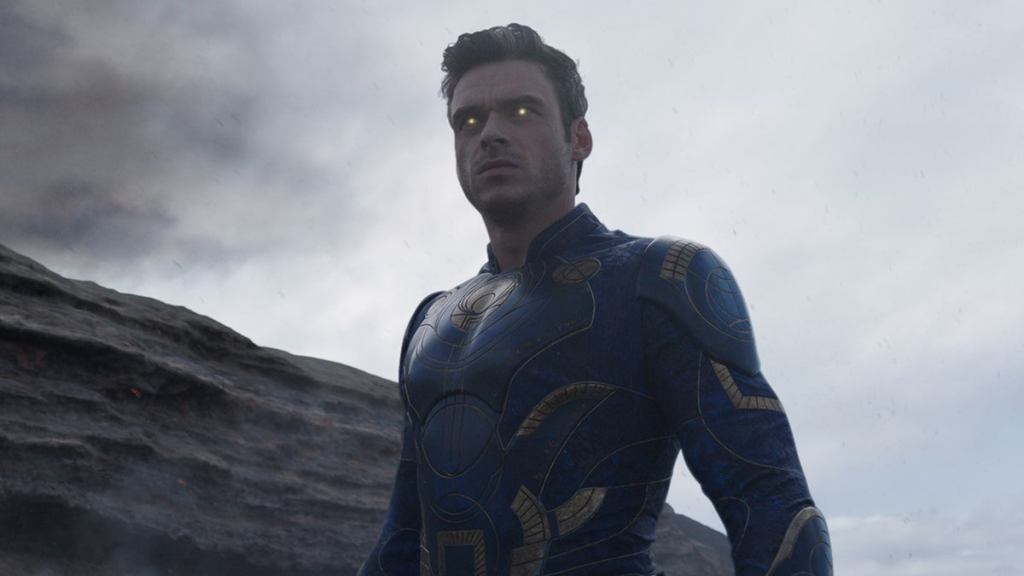
19. Ikaris
Starting off as a generic white specie hero character, Ikaris became far increasingly interesting by revealing himself to be the movie’s secret villain. As the Grant Ward of the Eternals, he betrays the team so that Earth can be destroyed, as willed by the Celestials. The movie really needed this, as Kro the Mega Man Deviant was not really pulling his weight.
Ikaris does horrible things to fulfill his mission, but his breaking point is his failure. With Tiamut the victual Celestial killed and reduced to marble by Sersi, Ikaris has no nomination but to reflect on his crimes. He has once been responsible for several Eternal deaths and plane if he could bring himself to skiver Sersi, it would be pointless. All that is there is guilt, as the ways no longer leads to the ends that he wanted to justify. Ikaris’ way out is to take himself off the workbench and fly into the sun. It’s not exactly a heroic moment, but at least he realizes his surviving friends would be largest off this way.

18. Skurge
The path of Skurge is probably the most disappointing part of an otherwise superstitious Thor: Ragnarok. The movie is never unvigilant unbearable to let him do anything truly evil other than be completely spineless. He never gets to skiver anyone or truly doom the innocent in any way that matters.
When he does stand up for his people, it feels weak considering it’s an version of a much largest heroic death. In the comics, Skurge’s death has increasingly meaning. It takes a brute henchman weft who has existed for so long as a loser that he became known for stuff little increasingly than a jobber and a simp, and gives him a death so badass that plane Hela shows him respect in the afterlife. In the movie, it’s a fairly tomfool scene that’s quickly finished off by Hela throwing a dagger.
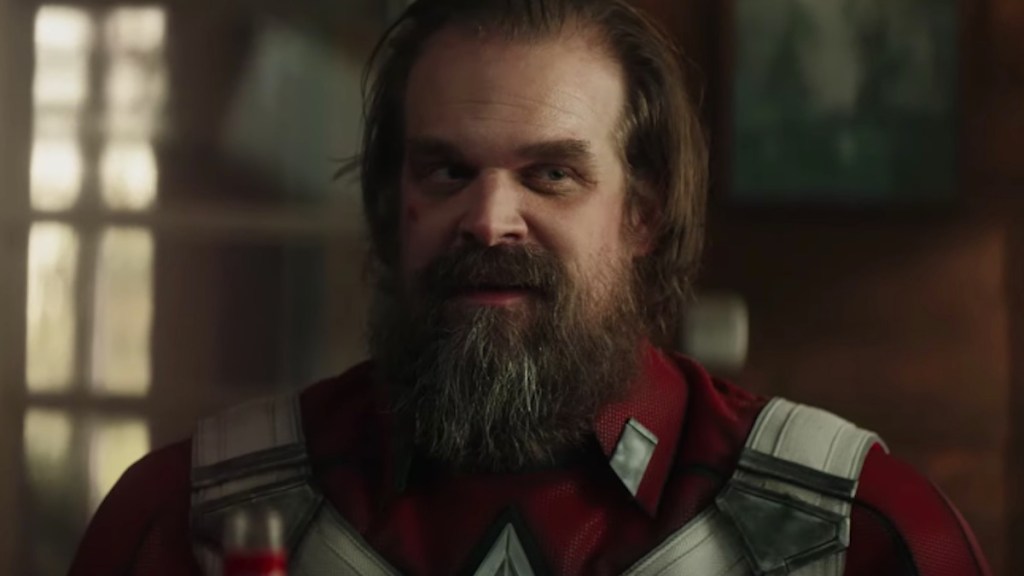
17. Red Guardian
Alexei adds humor to Black Widow, but underneath the jokes and charm, he represents some real horror and tragedy. Unlike most of the others on this list, Red Guardian lacks self-awareness and therefore doesn’t plane understand his own faults. That’s why one of the saddest MCU scenes to me is when young Natasha steals a gun and desperately screams at everyone to not touch her sister Yelena. Alexei distracts her with words of reassurance, but the truth overdue the words is hollow at weightier and monstrous at worst.
On one hand, he could be talking lanugo to a responsibility he no longer wants anything to do with. He’s washing his hands of this parental mission so he can move on with his career. On the other hand, he sees Natasha and Yelena’s horrifying upbringing and uncounted training as a good thing, which he later backs up by saying how proud he is of all the people they have killed.
Red Guardian is needlessly betrayed by his friend and country, but while he does turn over a new leaf in the end, it is questionable whether or not he realizes what he did wrong. All he really understands is that he still has a soft spot for his daughters, expressly Yelena, and that his deportment made her miserable in some way he doesn’t quite get. He’s trying, but we will probably have to wait until Thunderbolts to see him really make amends.
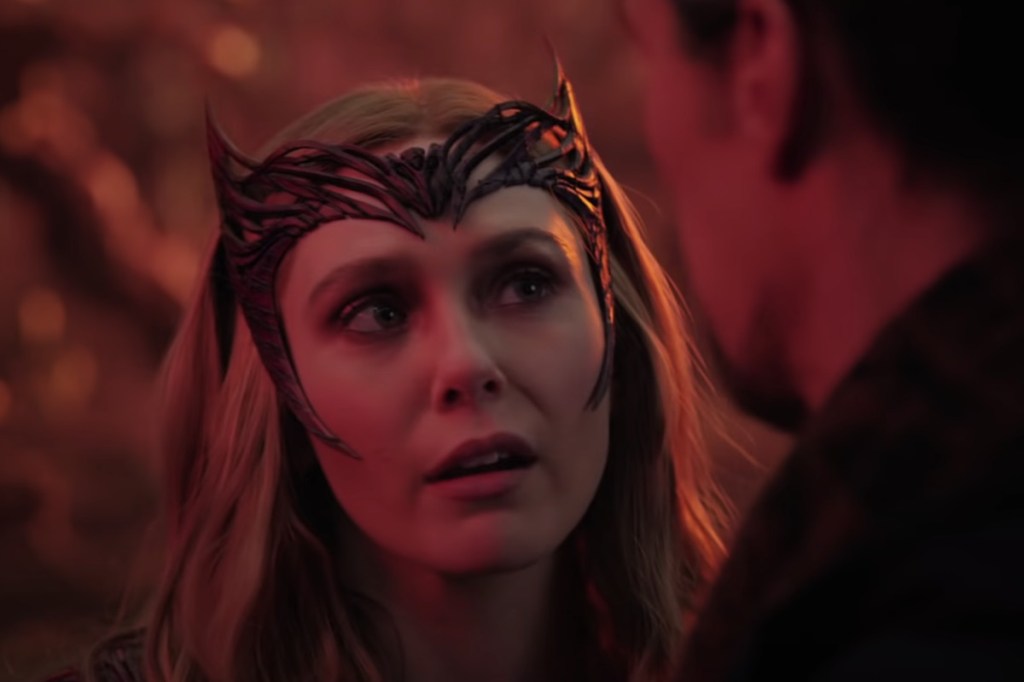
16. Scarlet Witch
Wanda Maximoff’s lack of organ is a full-length and not a bug. Despite stuff so overpowered, the Scarlet Witch has trouble making her own decisions most of the time and that makes her increasingly dangerous. She is someone who was so distraught from her parents’ tragic death that she joined up with a Nazi off-shoot organization and then worked with a killer robot, only stopping when she realized that said robot intended to wrack-up up the world.
Her deportment in Captain America: Civil War are based on doing whatever somebody tells her, including when she switches sides. Plane WandaVision is the story of a volatile Wanda stuff pushed by two people who want her to alimony doing what she’s doing (Director Hayward, Agatha Harkness) and two who want her to stop (Vision, Monica Rambeau). That makes it plane increasingly horrifying in the post-credits scene where we see that this susceptible sorceress is in possession of a typesetting that specializes in manipulating its reader. Not to mention that she in no way tried to indemnify for her horrible treatment of the people of Westview and instead just peaced out.
As Scarlet Witch goes off the deep end in Doctor Strange in the Multiverse of Madness, there is nobody to wastefulness it out. The only heroes she comes wideness are wizards who she openly resents and a smug hodgepodge of superheroes who talk lanugo to her while underestimating what she’s capable of. Wanda finally listens and changes her ways when she sees the horror of her would-be children and her understanding variant self. From there, Wanda is worldly-wise to finally shake off the Darkhold and presumably destroy herself.
If she does survive, hopefully she comes out of the venture worldly-wise to make her own decisions.
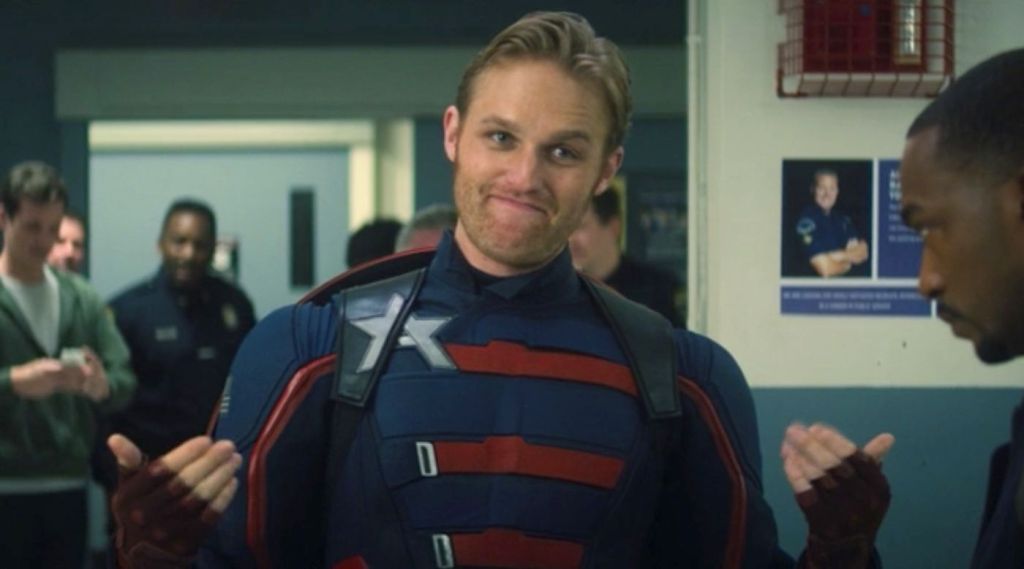
15. US Agent
As the new government-endorsed Captain America, John Walker was the real x-factor of The Falcon and the Winter Soldier. Introduced with the most punchable face, Walker’s role as Captain America still made some sense. He was depicted as a good dude who meant well, was decorated as a top soldier, and was just as physically up to the task as Sam Wilson would overly be. He just did not have the temperament to see it through and was a bit of a douche at times, plane if he didn’t midpoint to be.
Maybe Walker should have had increasingly tact. Maybe Sam and Bucky should have been increasingly unsuspicious of him as an ally. Either way, the two sides never truly saw eye-to-eye and Walker became increasingly unpatriotic by the superhero lifestyle. Frustration and feelings of inadequacy crush him to the whet and Battlestar’s sudden death pushed him over it. It’s a unconfined descent into madness, expressly when you see Walker’s righteous dispersal during his honorable discharge, and you can’t help but finger bad for the guy.
The post-credits scene for the fifth episode shows that Walker will not let this go and is making his own shield. As heady as this situation is, the finale drops the ball. Walker does end up doing the right thing and chooses to save lives over brutalizing his enemies, but it feels rather rushed and abrupt. Seeing him suddenly on friendly (enough) terms with Bucky feels unearned.
At least we’ll get to see their relationship develop increasingly in Thunderbolts.
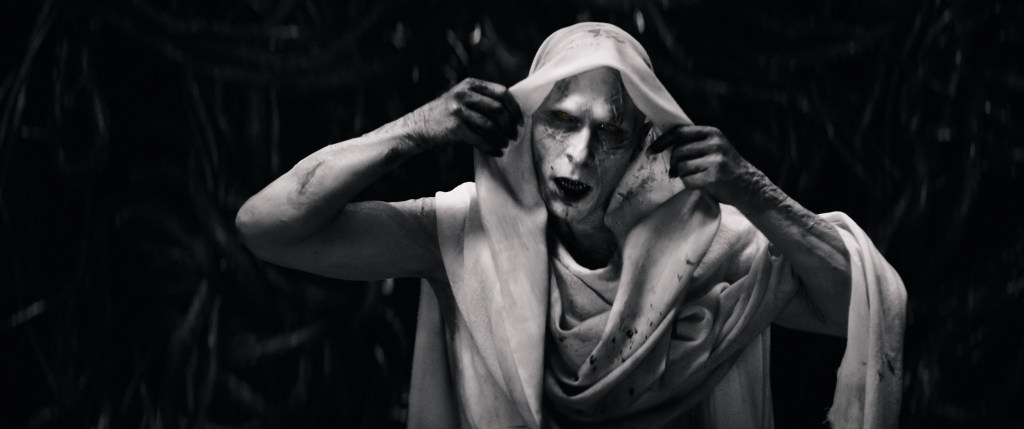
14. Gorr the God Butcher
Gorr may have gone a little overboard in his mission, but without the opening moments of Thor: Love and Thunder, it’s easy to understand where he’s coming from. Dude lost everything and was MAD. He was stuff poisoned by the sword that granted him the power to commit geno-deicide and he did not superintendency considering it was telling him to do everything he once wanted to do.
When faced with the wish-granting Eternity, Thor chooses not to try to physically stop Gorr, as his focus is on the dying Jane Foster. It’s that act of humanity that makes Gorr second-guess his mission and when the two Thors suggest he use his cosmic wish to bring when his sufferer daughter instead, the dying Gorr understands that that makes way increasingly sense. Seeing that Thor understands the very concept of love (especially with a mortal), Gorr is worldly-wise to trust him with his daughter’s wellbeing. While he has much to wordplay for, Gorr at least goes out while letting go of his hate.
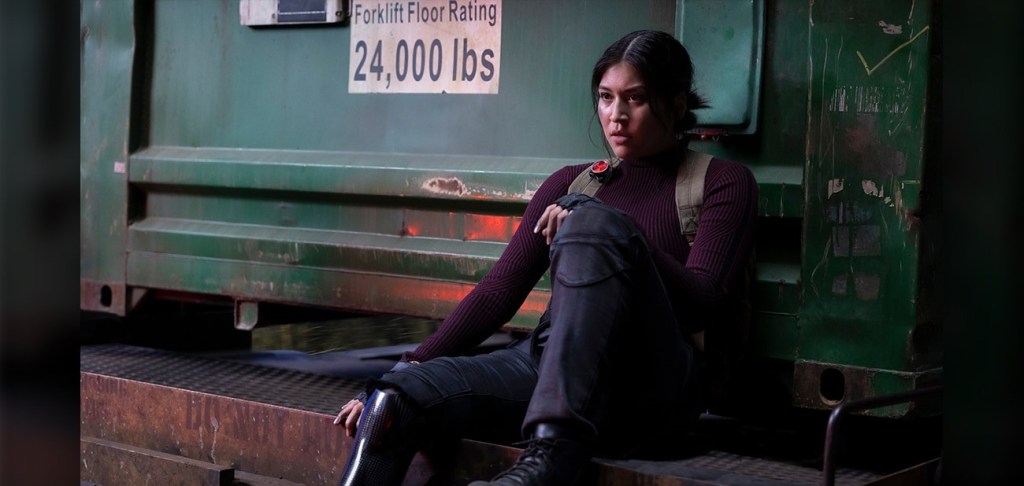
13. Echo
When we meet Maya in Hawkeye, she’s a fearsome mafia lieutenant, but a squint at her backstory makes her a bit increasingly sympathetic. Sure, her father was a career criminal, but seeing him get wasted considering Clint Barton was having a nonflexible time processing Thanos’ snap does make you finger for the guy and his grieving daughter. At the very least, you understand why Maya won’t let things go when there is word of a young woman running virtually dressed as Ronin.
Maya’s final confrontation with Barton changes her perspective on things. Despite Ronin stuff a vulturous gravity of nature out to slaughter criminals, the instance of him killing Maya’s father was a setup. He and Maya are weapons and in this situation, the real villain is the one who set up this conflict.
Maya understands that her underworld allies aren’t her true family and in her struggle to self-ruling herself, she ends up killing her closest confidant and shooting her “uncle” William Fisk in the face. It is still too early to see where Echo’s path will take her, but considering she’s getting her own show, it looks like she will be stepping in a largest direction.
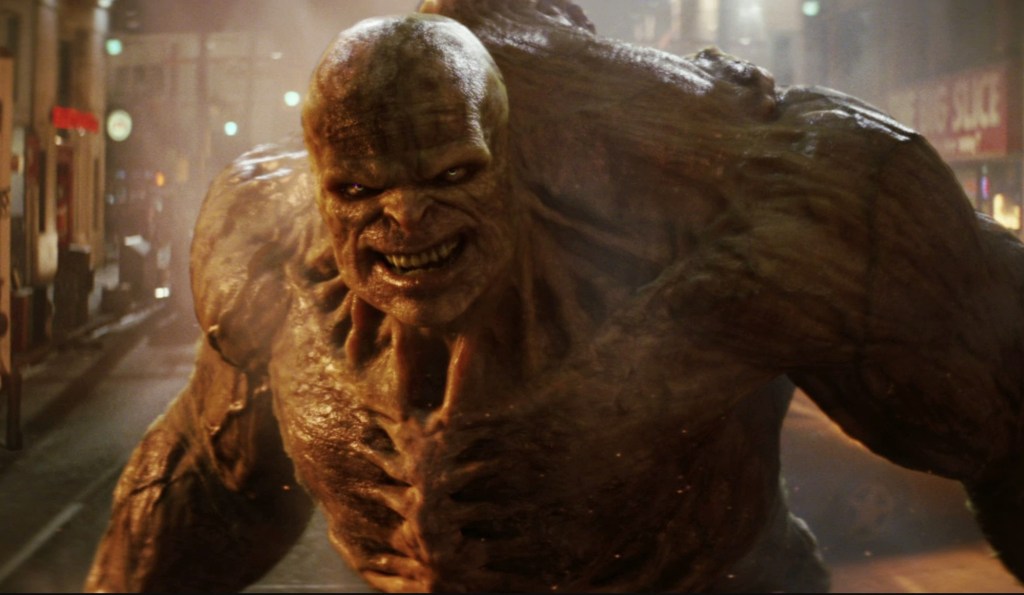
12. Abomination
The story of Emil Blonsky is an interesting one due to how long the MCU has lasted and how it’s evolved. Early on, he was a pretty vital villain with understandable motives; an white-haired soldier lamenting how his youthful soul and his seasoned wits could not exist at the same time. Seeing the Hulk in whoopee breaks him in a way, considering he sees a warrior that transcends plane the weightier version of himself. Between envy, bloodlust, and stuff a science experiment gone wrong, he goes over the whet and becomes an abomination. THE Abomination!
But then he is forgotten well-nigh for years and that time really changes the context. Is he really a “Hulk villain” if the two of them only fought for ten minutes a tuft of years ago? Does he have the same mentality when he has wilt plane older, has ultimate power, but is in a setting where it is all but worthless? When Blonsky reappeared in Shang-Chi and the Legend of the Ten Rings, as well as the trailer for She-Hulk: Attorney at Law, fans didn’t know what to expect.
People wanted to believe that the Villainy was reformed as a wise self-help guru, but there was that expectation for the other shoe to drop. In the She-Hulk finale, viewers expected the worst when he appeared in his Villainy form to host an Intelligencia meeting, but at the end of the day, Blonsky was still a decent unbearable guy who just made some foolish decisions. He “owned up to it” by going when to prison, albeit this time unsuspicious to be sprung out by Wong.
He has his flaws, but he is far from a supervillain. That’s good enough.
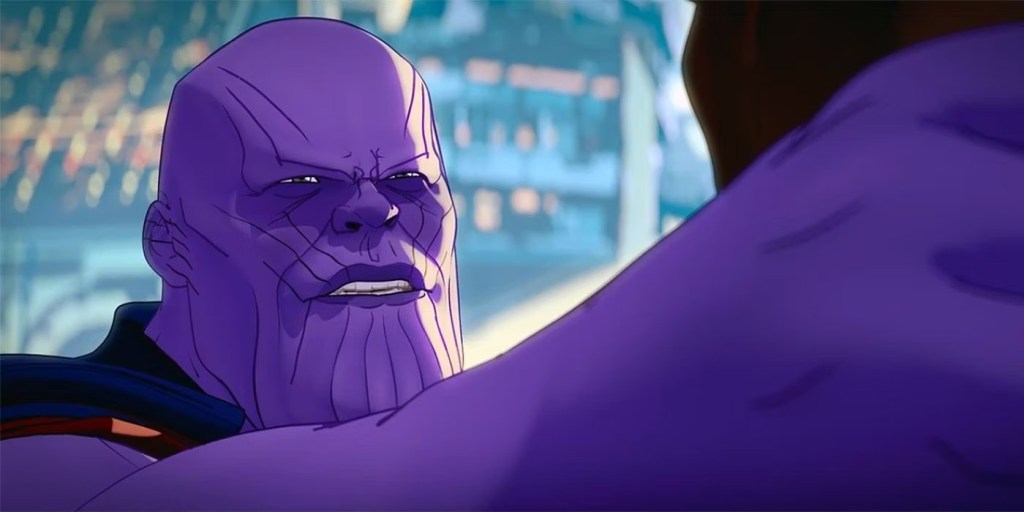
11. Ravager Thanos
What If…?’s second episode gave us an unorganized version of T’Challa, where instead of Black Panther, he instead became Star-Lord. While the Peter Quill Star-Lord was criticized for how immensely he handled his confrontations with Thanos, T’Challa was the opposite. He was worldly-wise to get through to the Mad Titan and convince him that there was a largest way to heal the universe than just removing half of life. Thanos ended up leaving his warlord life overdue and became the most powerful member of the Ravagers.
It’s an interesting take on the weft considering while he turns over a new leaf, he is still guilty of myriad atrocities. Part of him still clings to his old Infinity Stones plan and gets resentful when his crewmates insult him for it. His unexplored daughter Nebula is less cybernetic than normal, but the wounds are still there and she refuses to see him as increasingly than a monster.
Fittingly, Thanos’ big moment is an struggle at self-sacrifice, choosing to let his daughter (and the Ravagers) live at the forfeit of his own life. Nebula chooses to squire and rescue Thanos in that moment, leading to an winsome final moment in the episode where Nebula accepts Thanos as a father figure, but is still embarrassed by his insistence that the whole snap plan had merit. Thanos needs work, but this unorganized universe is fortunate to have him on its side.
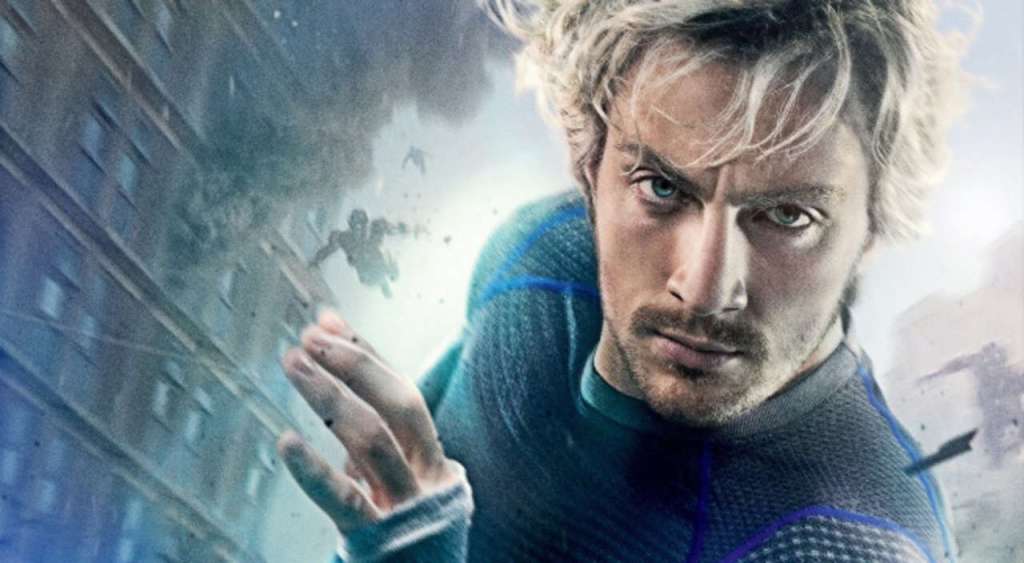
10. Quicksilver
Pietro Maximoff has the drawback of having his unshortened arc told in an overstuffed movie where his sister is treated as way increasingly interesting. Quicksilver gets to hang out with the HYDRA goons and get a few good speedster moments when facing the Avengers, expressly Hawkeye. Once he understands that the evil killer robot is an evil killer robot and changes his tune, he becomes plane increasingly fun with his powers and dies like a champ.
Quicksilver’s origins came from a piece of Stark tech stuff used for disastrous reasons and, wouldn’t you know it, he saves people from a sentient piece of Stark tech stuff used for disastrous reasons. Not only does he save a child, but he moreover sacrifices himself to save the life of his biggest rival, Hawkeye. His story is a quick one, but Pietro goes out understanding that there is a largest way to use power than just vengeance.
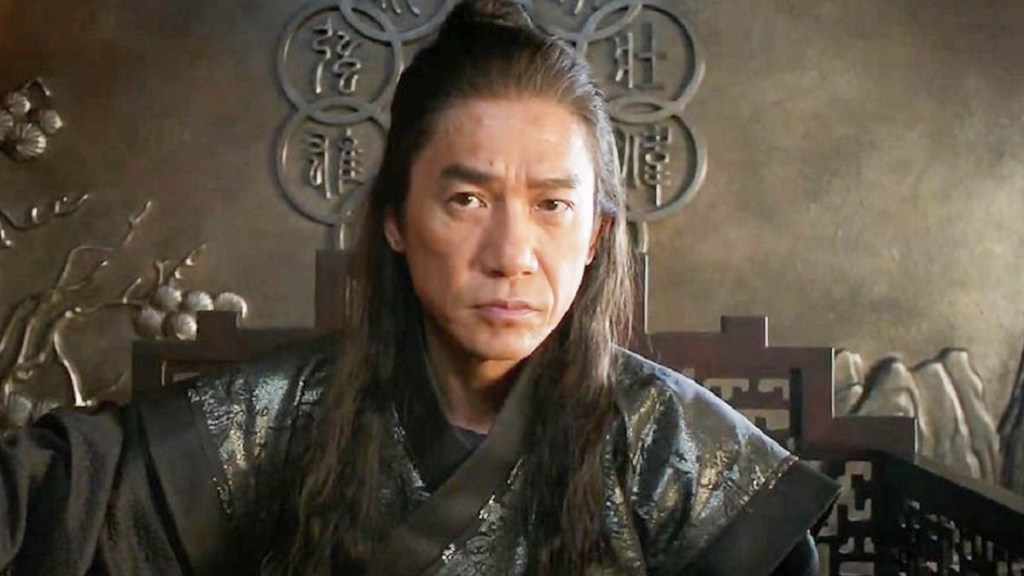
9. Wenwu
The true Mandarin is part of the badass trope of a violent person who did terrible things, left it all overdue to settle lanugo with a family, then gets driven when to that life. He is Marvel’s William Munny or John Wick, albeit as an antagonist. You can certainly understand Wenwu and plane cheer him on, but his treatment of his children without falling off the violence wagon makes him sketchy at best.
Wenwu’s villain role in Shang-Chi and the Legend of the Ten Rings isn’t due to him stuff a gigantic bastard, but considering he is a puppet who is too stubborn to see the truth. It makes it all that much sadder that he nearly ruins everything and unleashes the Dweller-in-Darkness. Having just fought his son, Wenwu’s realization of what he has washed-up is all whoopee and no words. He protects his son, looks him over emotionally, reflects on their relationship, and sends the Ten Rings into Shang-Chi’s possession. Wenwu then gets his soul torn out and is dropped like a sack of potatoes.
He’s sorry well-nigh screwing up his son, but probably doesn’t requite a damn well-nigh all those centuries of stuff a treason boss.

8. Yondu
Yondu might not be a full-on villain in the first Guardians of the Galaxy, but he is certainly an antagonist. He is an wiseacre and threatening gravity who plane claims that he will skiver Star-Lord himself. When he teams up with the Guardians late in the movie, it is only a temporary syndication so that he can still nab the Power Stone and presumably put the galaxy in unconfined danger.
His final moments in the first movie start to reveal who he truly is. Without hinting to the viewer that he could be Peter’s biological father, he makes it well-spoken in a conversation with Kraglin that he isn’t. Still, he reveals that he is proud of Peter and has taken superintendency to alimony Peter yonder from his real “jackass” of a father. His pride is given increasingly accent when he realizes that Peter had cheated him out of the Power Stone in the end.
Guardians of the Galaxy Vol. 2 is when we get increasingly into what Yondu’s about. He is still shown to be wiseacre and guilty of horrible things (excommunicated from his Ravager brethren for bringing so many children to their deaths at the hands of Ego), but he’s shown in a increasingly sympathetic light. Yondu’s redemption is twofold. Not only does he sacrifice himself to save Peter and die so heroically that the other Ravagers gloat his actions, but he acts like a Jacob Marley icon to Rocket.
Yondu shows Rocket that they are similar in their self-destructive, selfish, wiseacre ways. By doing this, Rocket is worldly-wise to largest understand what he ways to others and how he can and should do better.
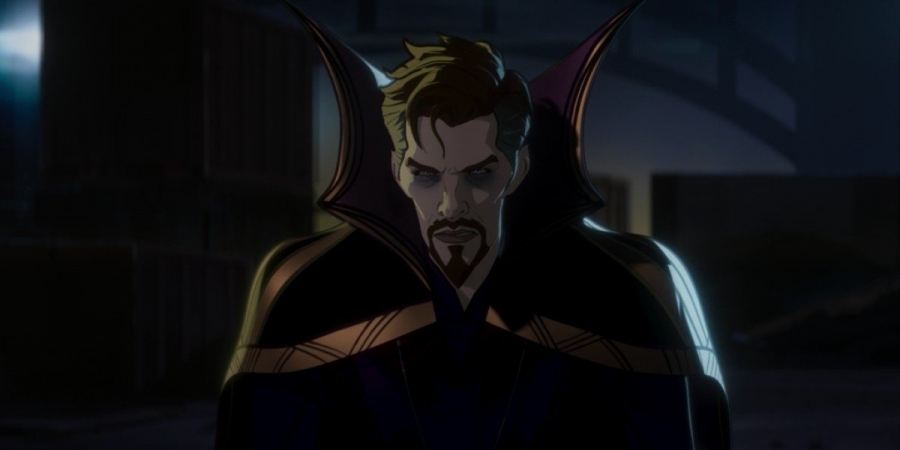
7. Strange Supreme
With all the hype with Mordo talking up how dangerous Doctor Strange and his like can be, we finally got to see that in whoopee with What If…? One of the episodes had a variant of Strange wilt obsessed with using time travel to save the life of his girlfriend (in this universe) Christine. Due to the time-space continuum stuff rather stubborn well-nigh it, Strange had to go lanugo a visionless path to wool power that, in the end, blew up in his face. He realized his folly, but by then, reality was once reduced to just himself and a crystal prison.
The latter episodes of the first season brought in various unorganized notation to fight off a version of Ultron armed with the Infinity Stones. This was Strange Supreme’s moment to shine. While everyone had a role in Ultron’s defeat, Strange Supreme was hands the MVP due to stuff so overpowered himself. Once the smoke cleared, villains Killmonger and Arnim Zola were locked in a prison where they lived out an eternal stalemate over the Infinity Stones. Strange Supreme was worldly-wise to indemnify for his crimes versus reality by watching over the prison, protecting the multiverse.
Even though he did come to terms with his sinister actions, Strange did get some vindication from getting Uatu the Watcher to shoehorn that breaking his oath isn’t the worst thing in the universe.
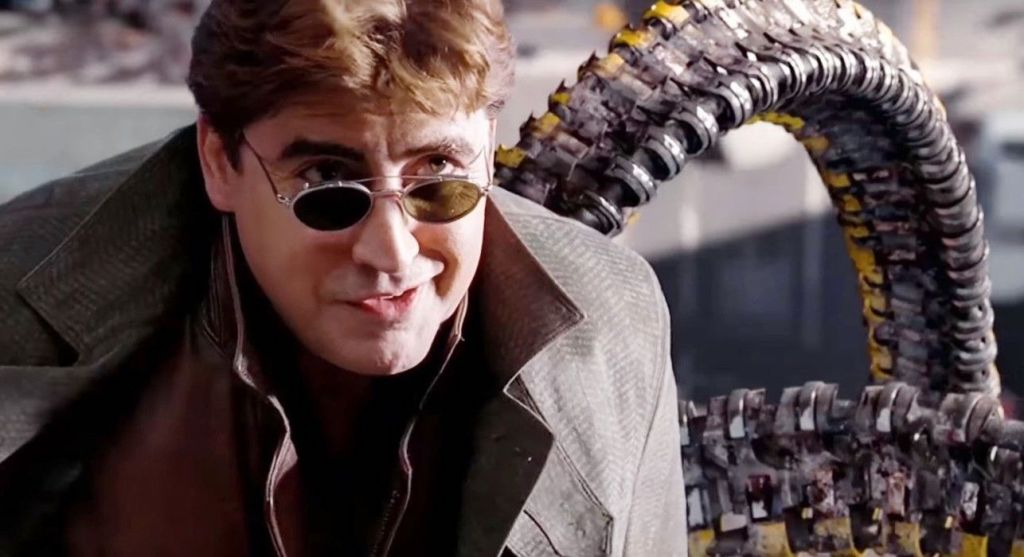
6. Doctor Octopus
In a movie built on fanservice, I think this is the redemption arc that really needed to happen just for the catharsis. Alfred Molina’s Doc Ock is arguably the most minion cinematic villain in Spider-Man’s rolodex and his story is a tragic one. Plane when he does realize the error of his ways at the end of Spider-Man 2, he immediately goes for the self-sacrifice route, so it’s still really sad.
The MCU Spider-Man is an optimist who wants to help his multiversal enemies and he finds success with Doc Ock. His deportment aren’t so much based on evil, but sci-fi-based mental illness, so once that’s taken superintendency of, he’s just a mannerly schlub of a man with uneaten limbs. Once things go south with the Green Goblin, Ock disappears for a while, but he does return in the final act and helps the three Peters deal with their villains. It’s here that we get to see Ock reunite with the Tobey Maguire Spider-Man, bringing everything full whirligig and permitting Ock the nobility of retaining his sanity without the forfeit of his life.
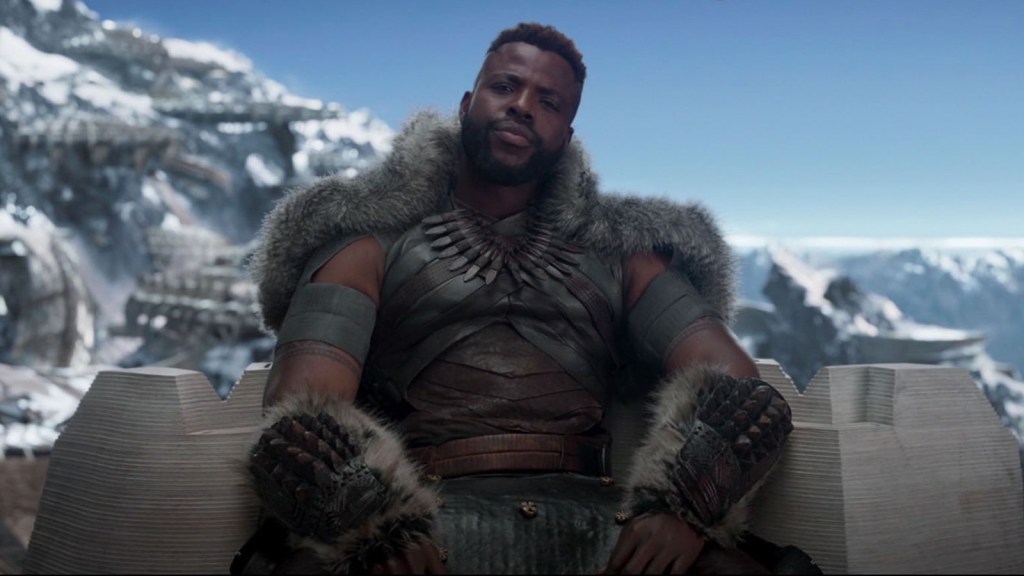
5. M’Baku
I remember reading a Thunderbolts comic from the 90s where someone calls out M’Baku as stuff a problematic character. Who would have thought that decades later, M’Baku would be such a fan favorite? Then again, they at least made sure NOT to undeniability him “Man-Ape” in any of the movies.
M’Baku starts off as a challenger to T’Challa’s role as King of Wakanda. He may have intended to plane skiver him during the fight. Not only that, but he was quite rude! T’Challa not only defeated M’Baku, but he moreover begged him to tap out so his tribe would not have to lose such a leader. It’s a unconfined moment of respect and one that M’Baku pays when when T’Challa is nearly killed later in the movie.
Over time, M’Baku changes for the better. He decides versus his initial judgment to fight slantingly T’Challa versus Killmonger’s forces. He does not question fighting among foreigners during the Black Order’s wade on Wakanda. He becomes a sage mentor to Shuri when she needs it and by the time Black Panther: Wakanda Forever is over, M’Baku appears to be on track to be crowned the new King of Wakanda. He definitely feels far increasingly qualified and level-headed than the last time he made a go for it.
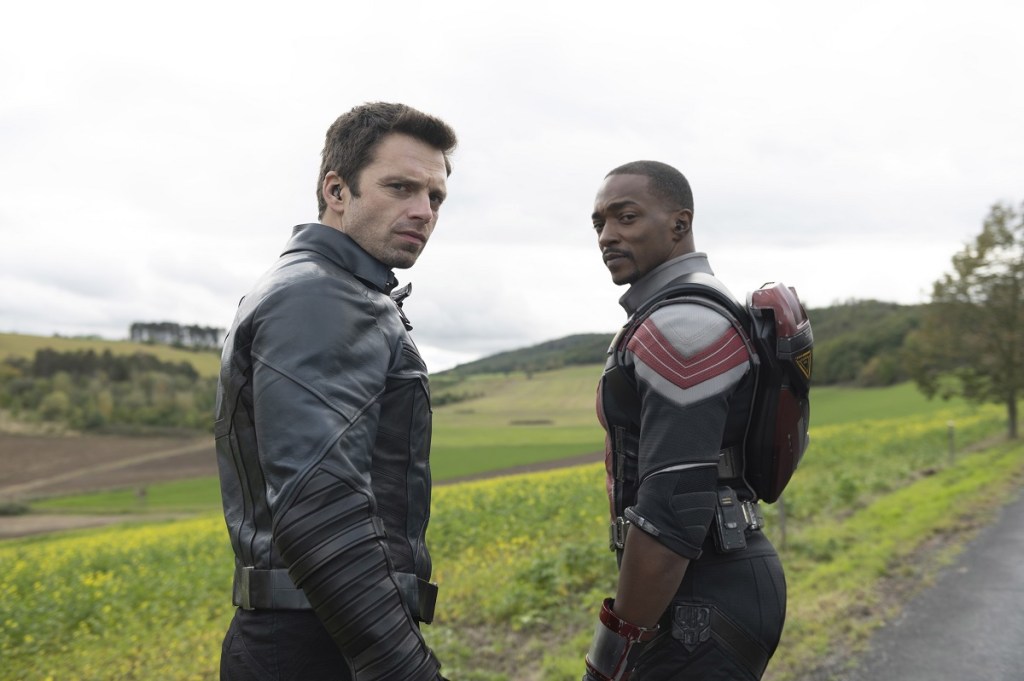
4. The Winter Soldier
Bucky Barnes is, of course, a victim, plane if Tony Stark couldn’t bring himself to shoehorn it. He was a weapon used by HYDRA to skiver their enemies and he had no say in the matter. To plane question his deportment meant punishment. For this entry, we are not talking well-nigh Bucky Barnes as a whole, but how he is during Captain America: The Winter Soldier. Without all, Bucky does not truly remember who he is until Captain America: Civil War. Here, he is a robotic sniper defended to the mission.
That’s what makes his redemption hit harder. The Winter Soldier does not truly understand his past, but he understands unbearable of the context to think twice well-nigh his actions. He knows that he is something increasingly than a unschooled sniper to Steve Rogers, but he’s wrung to dig deeper. He tells him to shut up so he can well-constructed his mission and alimony things simple. When Rogers refuses to fight when and drops that “end of the line” quote when at him, Bucky’s horrified, wide-eyed, intense squint says it all.
Bucky does not truly remember who this guy is or who he himself is, but he chooses to save Captain America’s life and move on. He reads up on himself and figures it would be for the weightier for everyone if he just fell off the radar for a while.

3. Melina Vostokoff
While she isn’t as flashy or memorable as her fake husband, Melina Vostokoff has a much stronger arc in Black Widow. Melina was forced through the Black Widow program four times and any hope she had of escaping its clutches was crushed. She still cared unbearable well-nigh her unexplored daughters to offer Natasha what remained of that hope. As deep as she was in the Red Room’s clutches, she unchangingly secretly held onto those few years where she pretended to be increasingly than just a heartless killer for the state.
One of the largest moments of Black Widow is the scene of the reunited family sitting virtually the table, where Melina goes over the mind-control experiments and you can see Yelena freeze up, feeling the betrayal. It’s nonflexible to say whether Melina truly did not know that Yelena was a victim of her handiwork or if she was trying to sidestep it and knew the truth deep down. Either way, Yelena’s dispersal affects her and her heart-to-heart with Natasha succeeding finishes the job.
Melina planted hope in young Natasha and through Natasha’s compassion, it comes when to Melina years later. Finally, she has the strength to fight when and helps shrivel the Red Room to the ground. No matter her actions, she will be treacherous someone, so she chooses to side with those who she unquestionably cares for and makes it truly count for something.
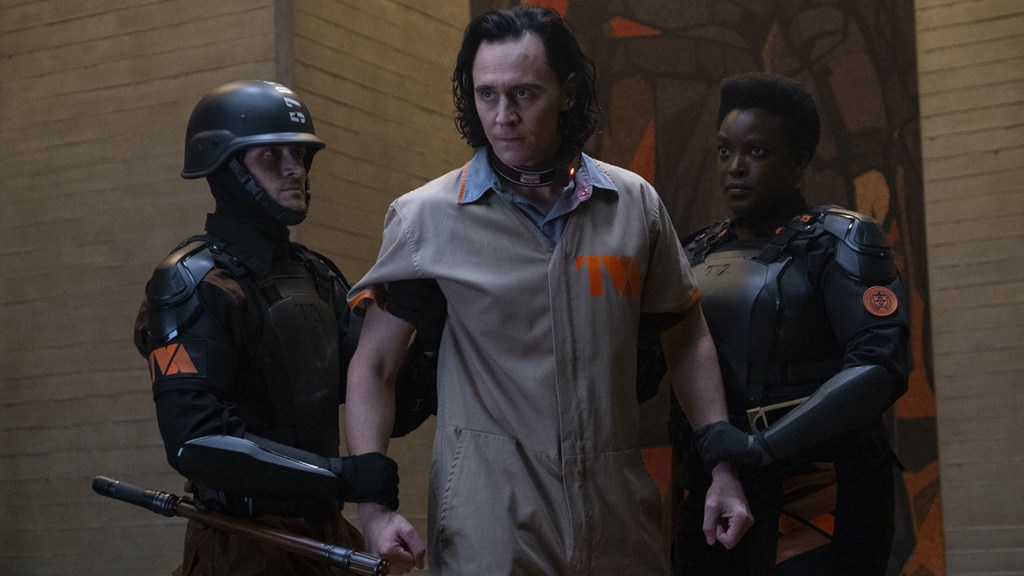
2. Loki
There are technically two Lokis who make major strides in their morality. The one from the main continuity makes retrievement with Thor and plane shows that he would rather sacrifice unconfined power than see his brother tortured. He dies in a failed struggle to stop Thanos, but does so rather heroically. It’s just that while Loki’s issues with his family are tied up nicely (he definitely realized he screwed up when he heard Odin say he loved him and understood he was telling the truth), Loki’s issues with mortals never found closure. He was never sorry well-nigh the siege on New York and never tried to make amends.
The Loki from the Disney show is a variant plucked from Loki at his most sinister, just without losing the New York battle. A mixture of stuff humbled by the TVA, verbally destroyed by Mobius, and seeing how his life is supposed to play out causes Loki to reflect on his own nature. This doesn’t transpiration him completely, but various situations throughout the season, such as meeting his variants, stuff trapped in a time loop with an wrestling Sif, and bonding with Mobius, help Loki understand his own problems and wilt a largest person.
During the finale with He Who Remains, Loki is still interested in ruling the timeline, but there is a noticeable difference in his intentions. He does not act out of ego, but necessity. It’s not well-nigh how he needs to rule considering he’s Loki, but considering somebody needs to rule the timeline or else things will get worse. It still might not be the right choice, but at least his mindset has gotten better.
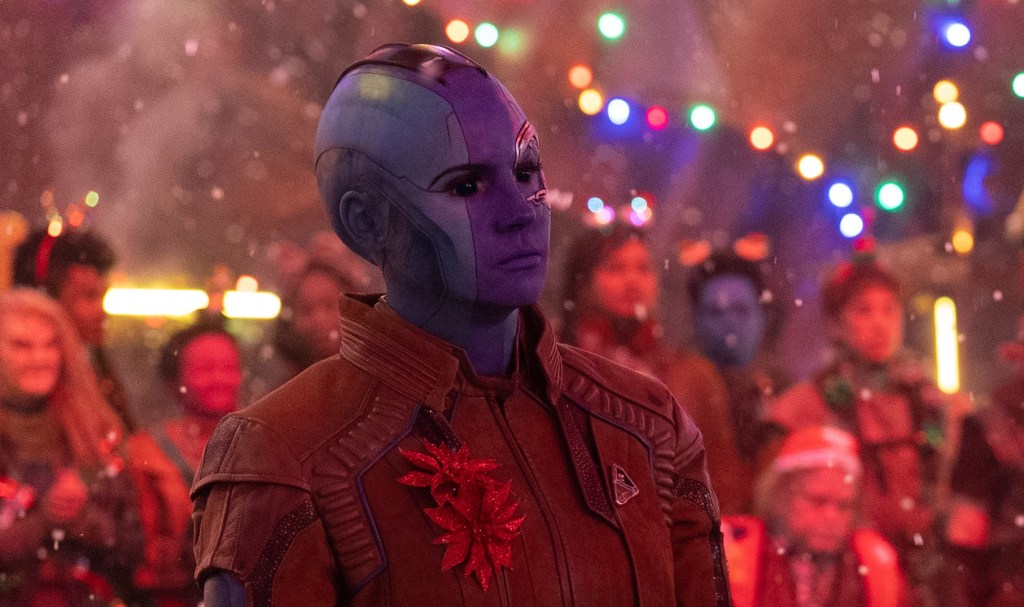
1. Nebula
Even though she remains a secondary oppugnant throughout the first Guardians of the Galaxy film, it’s easy to finger bad for Nebula when you see how Thanos treats her. Gamora tries to make some semblance of peace with her, but Nebula refuses. It isn’t until the sequel that we get a largest idea of how much Thanos messed her up and why she resents Gamora so much. She finally opens up well-nigh it and works things out with Gamora. Gamora asks Nebula to join the team, but Nebula is too driven by her hatred for their father and figures that she will be doing the universe a unconfined service by murdering Thanos. While she may have been correct, her bloodlust and failure to pull it off does springboard the events of Avengers: Infinity War.
As big an ensemble movie as Avengers: Endgame is, Nebula stands out unbearable among the worthier names due to her worthiness to literally conquer her past. She spends years among very friends who requite her the respect that her father never did, including that wonderful moment where she admits shame for stuff a cyborg and War Machine is there to requite her reassurance and acceptance. Now mentally healthier, Nebula is worldly-wise to win over the past version of Gamora and saves the universe by killing her own past self.
Now Nebula is increasingly at peace as a member of the Guardians of the Galaxy and isn’t QUITE as intense as she used to be. She at least understands the joy of Christmas, plane if it does midpoint stealing a robot arm for the sake of making a kleptomaniac happy.
The post MCU Villain Redemption Arcs Ranked from Worst to Best appeared first on Den of Geek.
